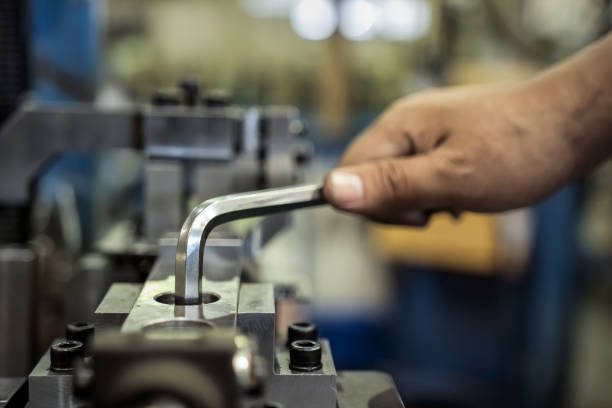Why do some technicians use Allen Keys instead of self-tapping screws to fasten joints?
Why Some Technicians Prefer Allen Keys Over Self-Tapping Screws for Fastening Joints
In the world of hardware and tooling, the choice between using an Allen key (or hex key) and self-tapping screws can significantly impact the final product’s efficiency, durability, and aesthetics.
Why Some Technicians Use Allen Keys Instead of Self-Tapping Screws to Fasten Joints
Some technicians use Allen keys instead of self-tapping screws to fasten joints because Allen keys, used with socket screws, offer better control and torque. In the South African context, especially in industries like automotive or construction, precise control can be vital. Self-tapping screws are designed to tap their threads as they are driven into a material, but they may not provide the same level of control and can sometimes strip or damage the material. The Allen key system allows the technician to apply the exact amount of pressure needed, reducing the chance of damage. For example, in assembling a piece of furniture, using an Allen key could help ensure that the connections are tight without over-tightening, which could cause the wood to crack or split. In contrast, a self-tapping screw might not offer the same level of control, leading to a less secure connection or even damage to the material.
Here’s an exploration of why some technicians might opt for Allen keys over self-tapping screws when fastening joints:
- Greater Torque Control: Allen keys are designed to fit snugly into the recess of a bolt or screw, providing even pressure and greater torque control. This reduces the risk of stripping the fastener or damaging the material.
- Uniform Aesthetic: Hex socket screws, which require Allen keys, often provide a smoother and more uniform look. With no protruding heads, these fasteners can be more visually appealing, especially in applications where the aesthetics of the joint are important.
- Reduced Wear: The internal hex design minimizes wear on the tool and the fastener. Unlike Phillips or flathead screws, which can wear out or become stripped more easily, hex socket screws are less susceptible to these issues.
- Less Slippage: The design of the Allen key provides a better grip on the fastener, reducing the chances of the tool slipping out and potentially damaging the surrounding material or injuring the technician.
- Variability in Access: In tight spaces where it might be difficult to use a traditional screwdriver, an Allen key, especially the L-shaped variety, can be maneuvered more easily.
- Less Material Displacement: Self-tapping screws are designed to tap their own thread as they are driven into material. While this can be advantageous in certain situations, it also displaces material, which might not be desirable in some applications. In contrast, bolts that use Allen keys often go into pre-drilled holes with a predefined thread, ensuring a cleaner fit.
- Reusability: Hex socket screws can be removed and re-inserted multiple times with little to no wear, making them preferable in situations where parts might need to be disassembled and reassembled, like in flat-pack furniture or certain machinery.
- Specialized Applications: Some technical applications may specifically require the use of hex socket screws due to design specifications, load-bearing requirements, or other engineering considerations.
- Material Considerations: While self-tapping screws are versatile, they may not be suitable for all materials, especially if there’s a risk of the material splitting or cracking. Hex socket screws used with pre-drilled holes can often reduce these risks.
- Security: Some hex socket screws come with a pin in the socket (security hex screws) which adds a layer of security. These screws are tamper-resistant and can be used in applications where unauthorized disassembly needs to be prevented.
Conclusion
While both Allen keys and self-tapping screws have their advantages, the choice often boils down to the specific requirements of the job. Technicians might prefer Allen keys for their precision, torque control, and aesthetics, especially in specialized or high-quality applications. However, understanding the nature of the material, the desired outcome, and the demands of the specific application will guide the appropriate choice of fastening tools and methods.

